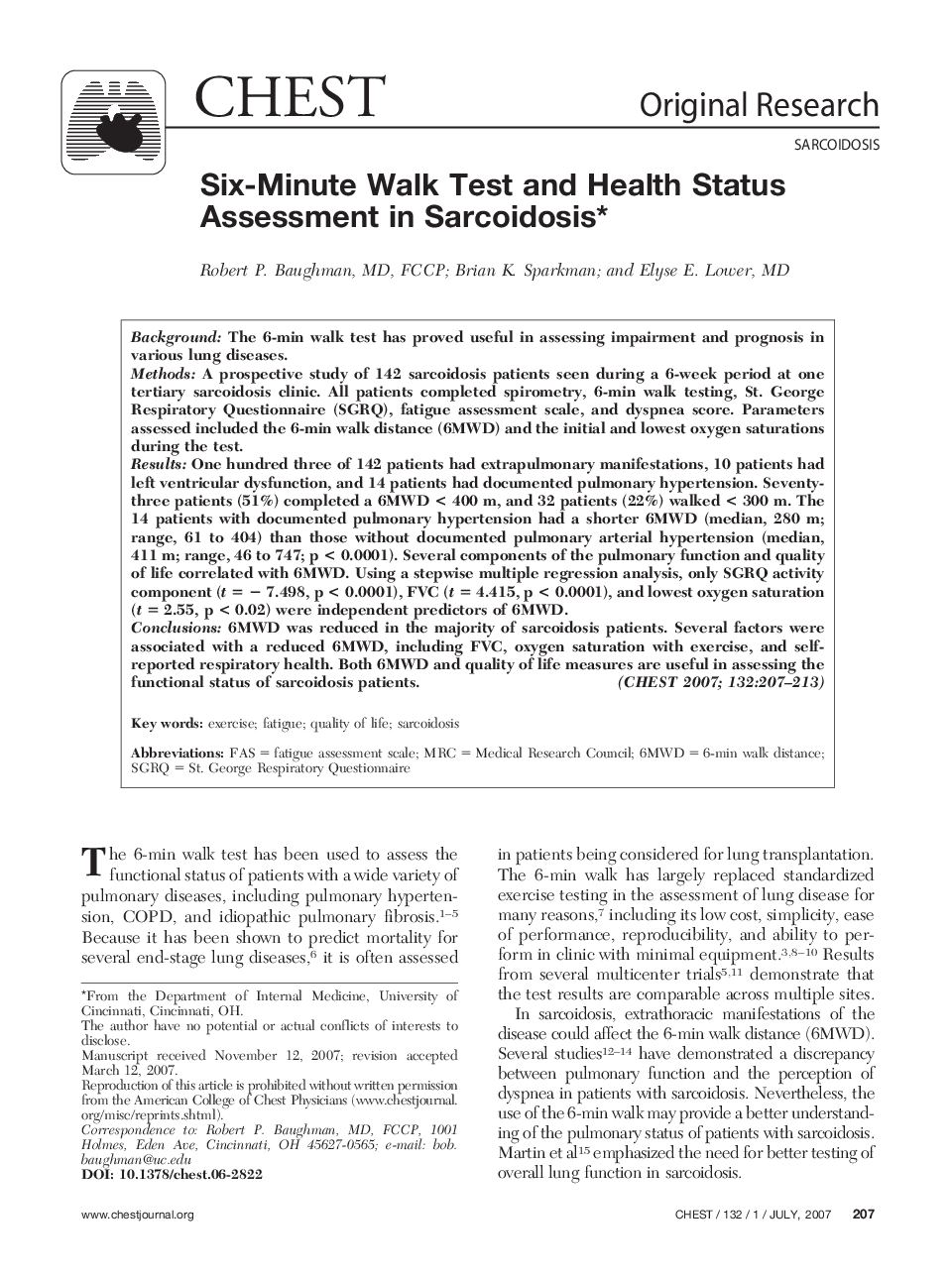| Article ID | Journal | Published Year | Pages | File Type |
|---|---|---|---|---|
| 2906452 | Chest | 2007 | 7 Pages |
Background:The 6-min walk test has proved useful in assessing impairment and prognosis in various lung diseases.Methods:A prospective study of 142 sarcoidosis patients seen during a 6-week period at one tertiary sarcoidosis clinic. All patients completed spirometry, 6-min walk testing, St. George Respiratory Questionnaire (SGRQ), fatigue assessment scale, and dyspnea score. Parameters assessed included the 6-min walk distance (6MWD) and the initial and lowest oxygen saturations during the test.Results:One hundred three of 142 patients had extrapulmonary manifestations, 10 patients had left ventricular dysfunction, and 14 patients had documented pulmonary hypertension. Seventy-three patients (51%) completed a 6MWD < 400 m, and 32 patients (22%) walked < 300 m. The 14 patients with documented pulmonary hypertension had a shorter 6MWD (median, 280 m; range, 61 to 404) than those without documented pulmonary arterial hypertension (median, 411 m; range, 46 to 747; p < 0.0001). Several components of the pulmonary function and quality of life correlated with 6MWD. Using a stepwise multiple regression analysis, only SGRQ activity component (t = − 7.498, p < 0.0001), FVC (t = 4.415, p < 0.0001), and lowest oxygen saturation (t = 2.55, p < 0.02) were independent predictors of 6MWD.Conclusions:6MWD was reduced in the majority of sarcoidosis patients. Several factors were associated with a reduced 6MWD, including FVC, oxygen saturation with exercise, and self-reported respiratory health. Both 6MWD and quality of life measures are useful in assessing the functional status of sarcoidosis patients.
